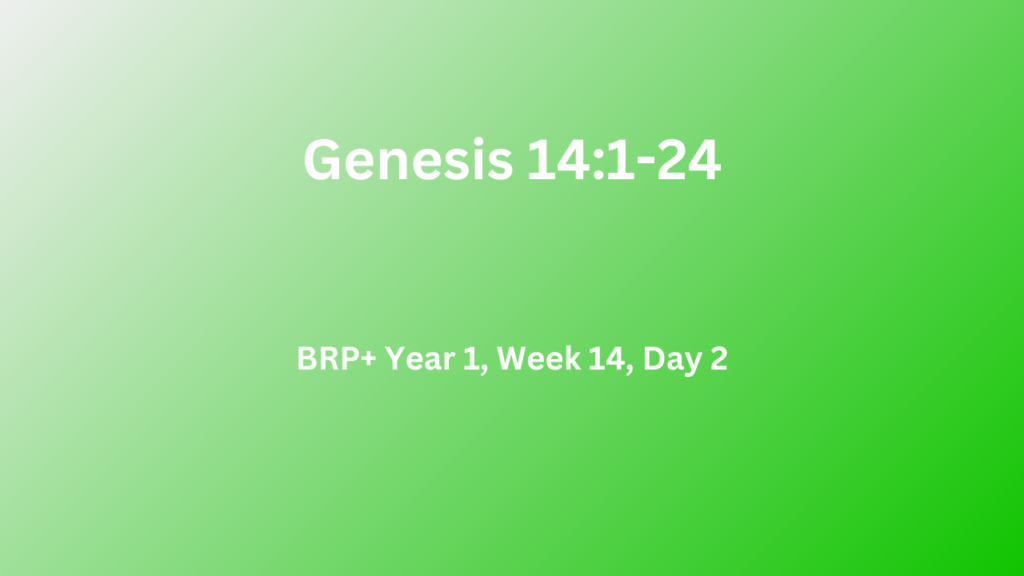Genesis 14:1-24
Q.1. How did Lot’s decision to live in Sodom lead to trouble and loss? (Gen.14:1-12)
God had greatly prospered Lot while he dwelt near his uncle Abram (see Gen.13:5-6). The prosperity of the cities in the lush Jordan Valley attracted the attention of the surrounding kingdoms. When five of these cities rebelled and refused to pay tribute to the four northern kingdoms, they were defeated in battle (see Gen.14:1-9). The invading kings stripped Sodom and Gomorrah of all their wealth … including taking Lot and all that he had (see Gen.14:10-12). He went from wealth to poverty overnight.
Q.2. How did Abram distinguish himself in his rescue of Lot? (Gen.14:13-16)
When a fugitive told Abram about Lot’s trouble, Abram didn’t hesitate to mount a rescue mission for Lot, although he only had three hundred and eighteen trained men (see Gen.14:13-14). In the surprise attack, Abram retrieved all the spoils of battle, including Lot and his family (see Gen.14:15-16).
Q.3 Who was Melchizedek? How did He confirm Abram’s place before God? Why did Abram give Him a tenth of the spoils of the battle? When did he give the tithe? (Gen.14:17-20 c.f. Heb.7:1-22)
The book of Hebrews makes much of Melchizedek: (i) He is King of Salem i.e. Shalom – Peace (Heb.7:1-2). (ii) He is a perpetual Priest of the Most-High God (see Heb.7:1 & 3). (iii) He is also described as the King of Righteousness (see Heb.7:2). (iv) He has no beginning of days or end of life (see Heb.7:3). (v) The writer revealed to us that Christ holds an eternal priestly role of the order of Melchizedek (see Heb.5:5-6 c.f. Ps.2:7; Ps.110:4). (vi) He informed us that when Melchizedek received a tenth from Abraham, He confirmed the promises made by God to Abram (see Heb.7:4-7 c.f. Gen.14:19-20). This first mention of Melchizedek is clearly, according to Hebrews, a Christophany (i.e. an appearance of Christ prior to His incarnation). Somehow, Abram recognized the pre-eminence of Melchizedek, and therefore gave Him a tenth of all, in gratitude for the divine victory over his enemies. Long before the Law was given, with details about bringing tithes to God, Abram practiced tithing in gratitude toward the pre-existent Christ (see Heb.7:4-10).
Q.4. Why did Abram refuse to benefit from the victory? What does this tell us about Abram? (Gen.14:21-24)
Not surprisingly, the king of Sodom offered Abram all the spoils of the victory to which he was entitled (see Gen.14:21). His response indicated the reason for Abram’s confidence, and for his triumph in battle. He had sworn to the Lord God Most High (Heb. El Elyon) that if he triumphed, he would refuse to benefit from his victory (see Gen.14:22-23). He was true to his word, lest the surrounding nations accuse him of benefitting at their expense. He would not tarnish the reputation of his God (see Gen.14:23-24). This revealed the strength of Abram’s dependence upon the Lord, and his awareness of his divine calling, and of his responsibility to those around him.

